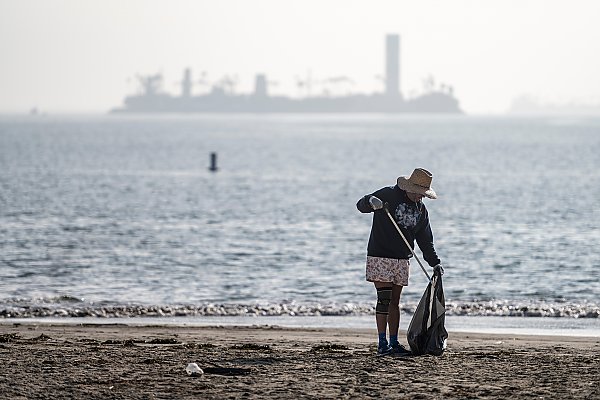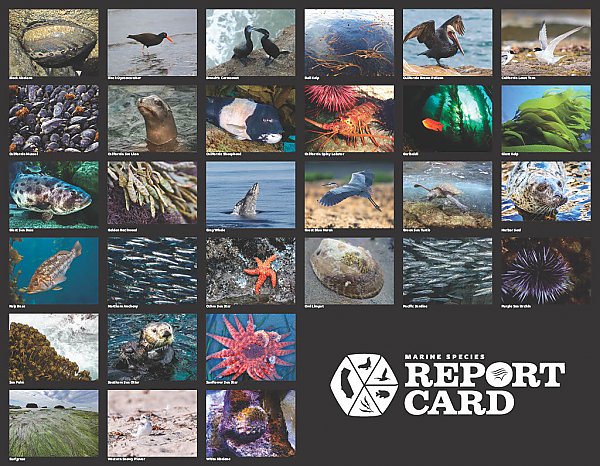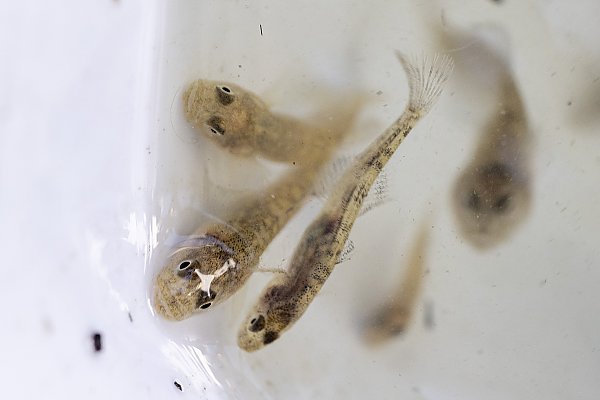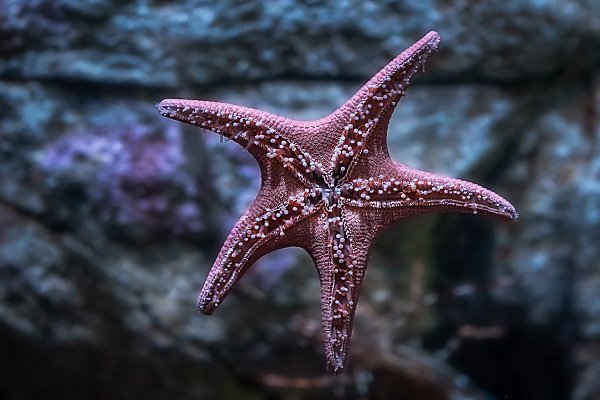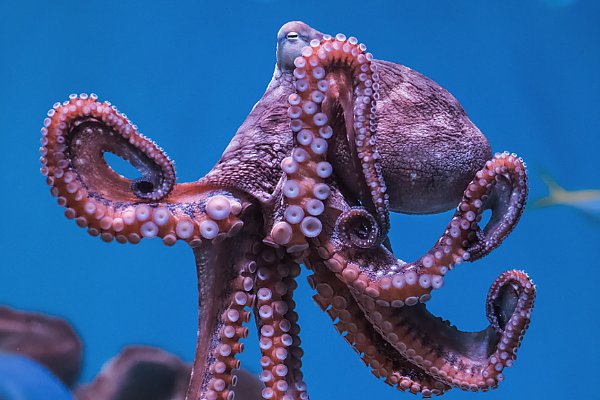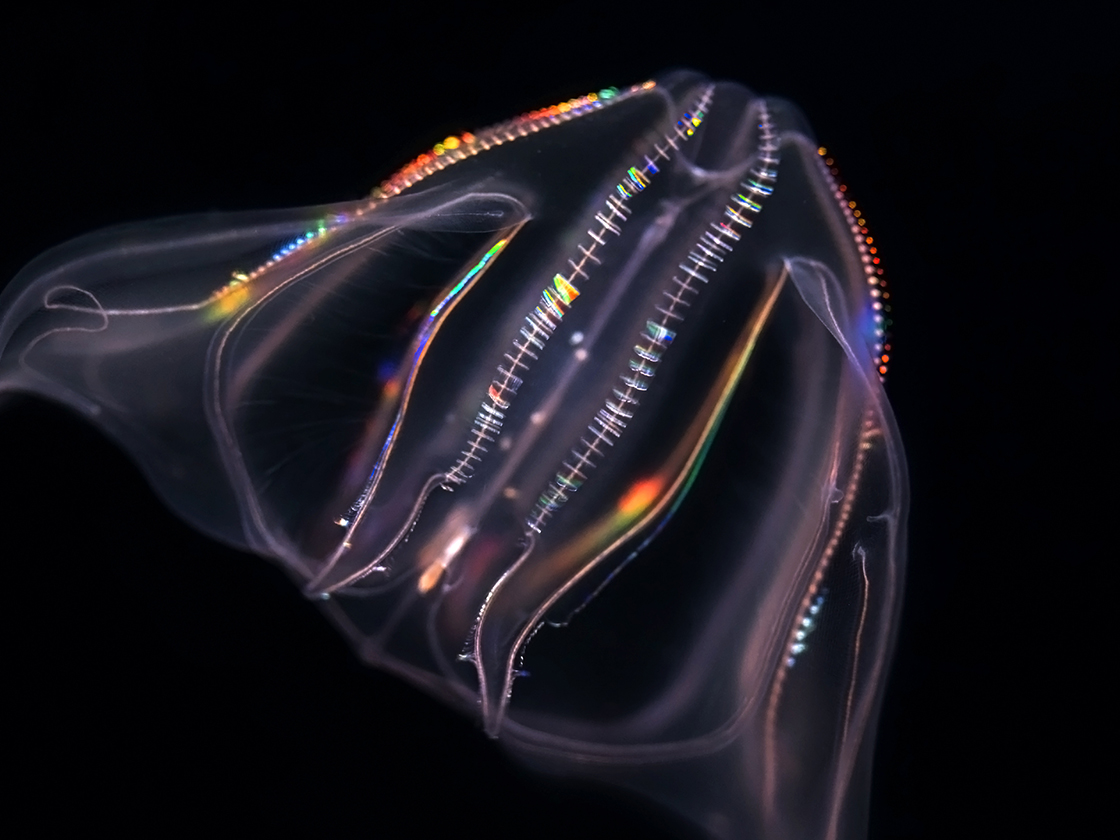A Look Back at 2021 at the Aquarium
The Aquarium was a bright spot for visitors and a growing online audience during the difficult year that was 2021.

Credit: Robin Riggs
December 17, 2021
We provided fun, learning, and respite from the stress of the pandemic by offering connections with nature. Undeterred by COVID, we continued to rescue injured marine life, restore populations and habitats, and reduce waste.
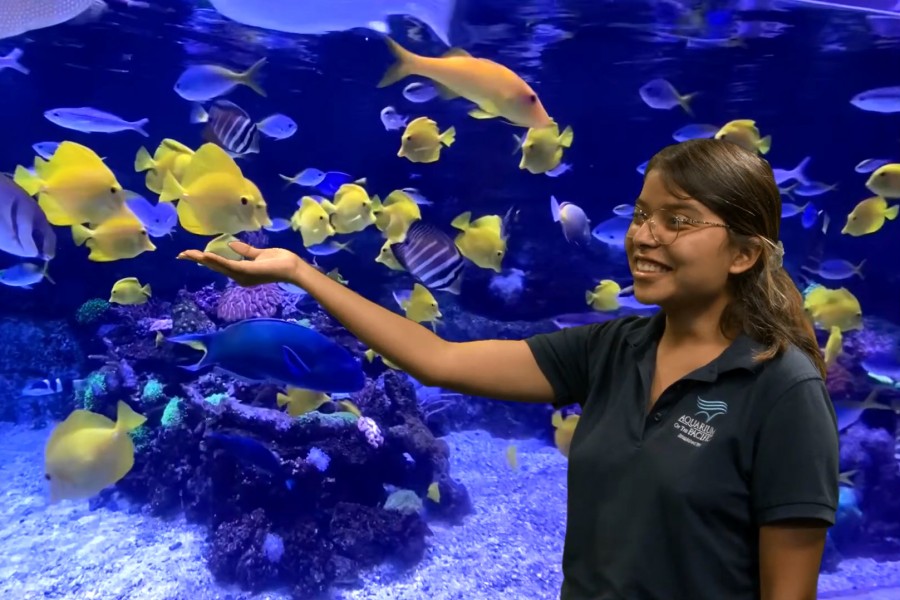
Education: All Ages, All Places
The Aquarium’s Online Academy programs made ocean education accessible around the world. Live-streamed sessions with our educators reached thousands of people, from school children at Los Angeles Unified School District to families on the east coast and beyond.
Adults attending the Aquarium’s First Wednesdays series and Aquatic Academy course learned about Long Beach Port operations, robots in the sea, sewage in the ocean, America’s wildlife refuges, and much more.

Creating Opportunities for All
The Aquarium’s commitment to serving communities traditionally underrepresented in marine science took many forms. Recipients of African American Scholar funds attended a symposium at the Aquarium in November, where they networked with industry professionals and shared their stories with high school students from Long Beach Unified School District. The Aquarium also launched a new American Indian Conservation Fellowship. Finally, scientists at the Aquarium published research that revealed some of the historical racist roots of conservation and made suggestions on how to ensure, in the twenty-first century, that communities of color do not feel excluded from careers in marine conservation.
We also welcomed and celebrated our diverse communities once again through our cultural festivals and heritage awards. Honorees at the festivals included Que Keju, an advocate for the Southern California Marshallese community; Wendy Ngau, a teen environmental justice activist; and Felton Williams, member of the Long Beach Unified School District Board of Education and lead developer of the Long Beach College Promise.

Credit: Aquarium of the Pacific
Saving Endangered Species and Helping Habitats
The Aquarium continued to restore local endangered species, including assisting with wild releases of giant sea bass and white abalone, and treating and releasing injured or stranded sea turtles. We also joined an effort to provide refuge and a home for the highly endangered mountain yellow-legged frog, with the intent of releasing the frogs back into the wild as soon as possible.
In December we announced the arrival of a sea otter pup, which we will care for until a permanent home is found for him. This pup was rescued off the coast of Pismo Beach, California, and wildlife officials determined he is not eligible for release.
Aquarium staff members were among the first in the water to rescue elegant tern chicks who had fallen off their nesting sites in the Long Beach Harbor. Then, after the oil spill in Orange County in October 2021, four of the Aquarium’s staff members walked every day for miles along the beaches between Long Beach and Oceanside in search of oiled birds in need of rescue.

Credit: Robin Riggs
Leadership in Sustainability
The Aquarium served as a place where people could come to learn about sustainability, see it in action, and get involved. With the Taking Responsibility and Saving Habitats (TRASH) Watershed Clean-up Program, volunteers take on a portion of their local watershed and conduct independent clean-ups with members of their household or other COVID-safe groups to remove trash from beaches, rivers, wetlands, and storm drains. This began as a program for registered Aquarium volunteers in 2020 and expanded to the public in 2021.
Meanwhile, Aquarist Josh Wagner continued to hone his skills culturing sea jellies and was able to reproduce Beroe comb jellies, making the Aquarium of the Pacific the first in the United States to do so. Breeding animals at the Aquarium and sharing them with other aquariums reduces our impact on wild populations.
In 2021 the Aquarium welcomed a team of graduating seniors from UCLA to collect data on waste at the Aquarium. They conducted three waste audits and using these data, developed a plan allowing the Aquarium to divert 75 percent of its waste from the landfill through recycling and composting. A food waste decomposition system will compost the food waste from Aquarium restaurants, kitchen, staff cafeteria, and food prep room. The nutrient-rich compost byproduct will be used to fertilize the landscaped areas. A trash compactor was installed to help cut emissions created by waste hauling trips.

Building Community
In 2021 the Aquarium added another component to its accessibility efforts to ensure the facility is a welcoming and inclusive experience for all visitors. Specifically, staff members began training with the organization Kulture City to earn certification as a place welcoming to those with sensory processing issues.
The Aquarium relies heavily on its dedicated volunteer corps, and volunteers provide service by working in every Aquarium department, from animal care programs and horticulture to marketing and education. While many were able to return to their onsite positions in 2021, others volunteered remotely. Teen volunteers participated in the Ocean Neighbors program, creating educational yard signs about marine life. A team of volunteers participated in research and writing to update the Aquarium’s online animal database. Other volunteers logged wildlife sightings around their homes and communities. Through these and other volunteer opportunities, Aquarium volunteers engaged in ocean education and stewardship that is central to our mission.

Credit: Robin Riggs
Best Wishes for a Happy New Year
Given the Aquarium’s total closure for two months in 2021 and the excruciating strains caused by COVID-19, none of the programs mentioned above could have survived without the greatest outpouring of donor support the Aquarium has ever seen. Everything from $5 gifts pledged during a TikTok live broadcast to $10,000 gifts from Trustees or Pacific Circle members made African American Scholars, mountain yellow-legged frog rescue, and so much more possible. You proved that with your generosity and other support in 2021. We look forward to welcoming you to the Aquarium in 2022.

